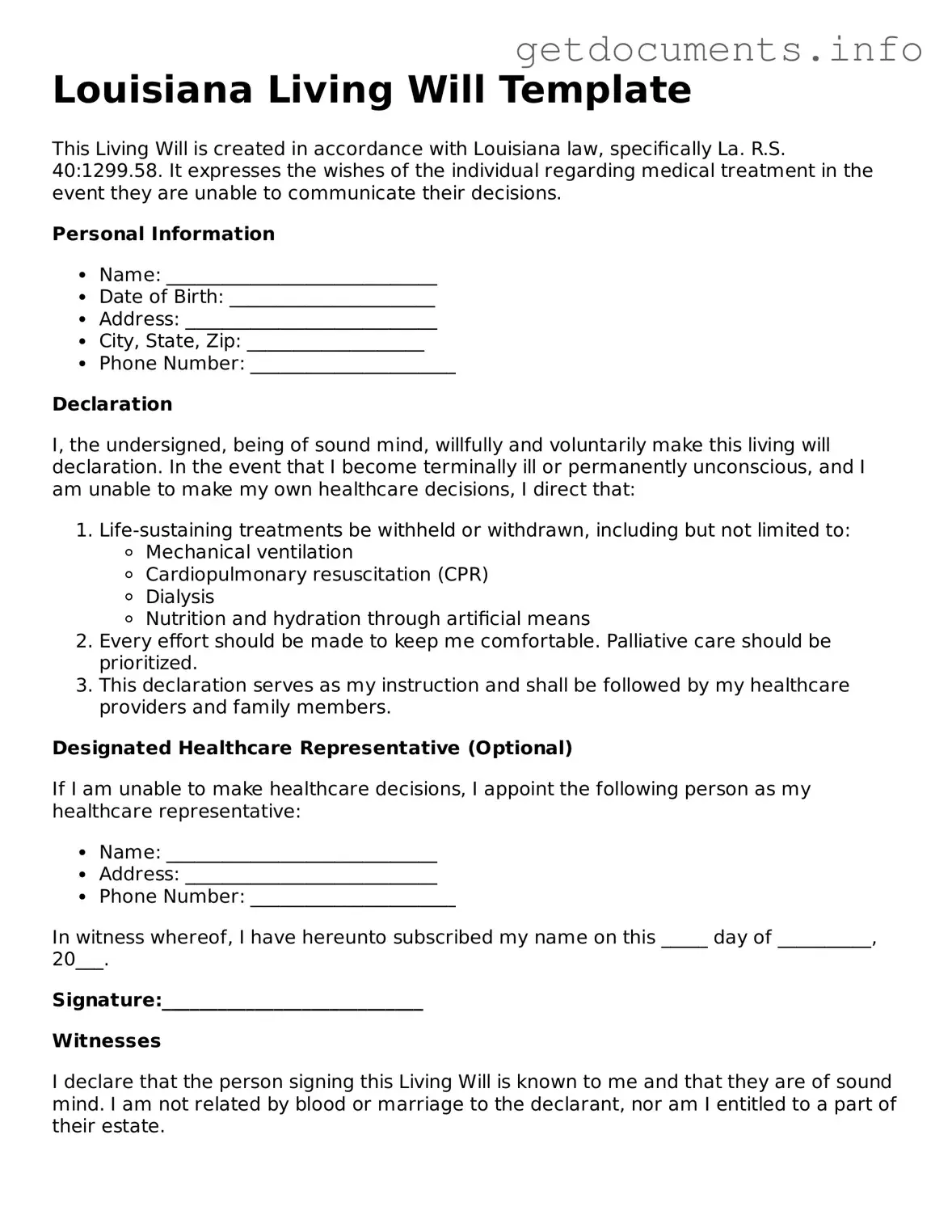Free Living Will Template for Louisiana
A Louisiana Living Will form is a legal document that allows individuals to outline their wishes regarding medical treatment in the event they become unable to communicate. This form ensures that your preferences for end-of-life care are respected and followed by healthcare providers. Take control of your healthcare decisions today by filling out the form; click the button below.
Access Living Will Editor

Free Living Will Template for Louisiana
Access Living Will Editor
Got places to be? Complete the form fast
Fill out Living Will online and avoid printing or scanning.
Access Living Will Editor
or
⇩ PDF File
